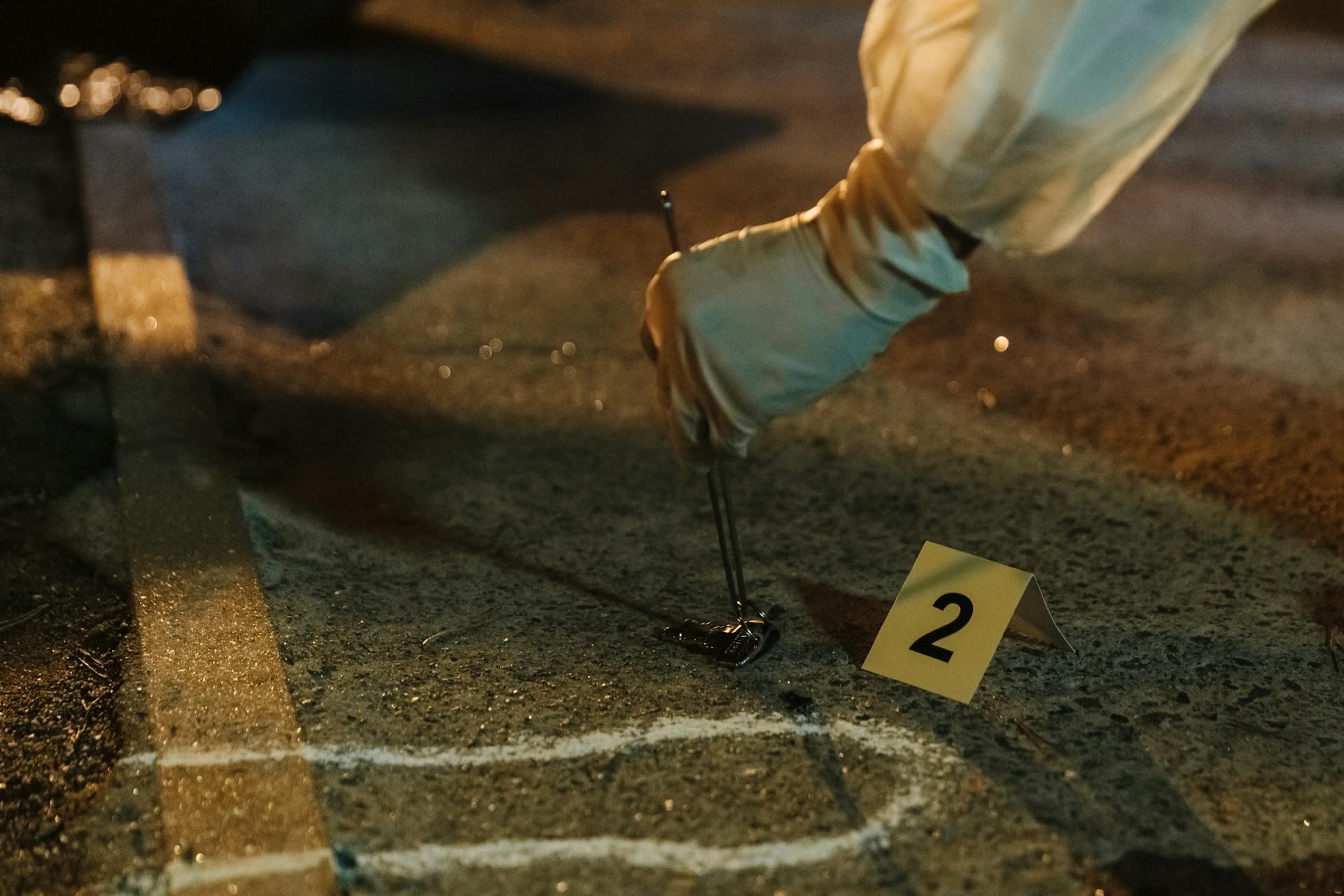Forensic science is one of the sciences that garners the most curiosity and attention, especially due to crime scene investigation TV shows like CIA: Crime Investigation Australia and Forensics: The Real CSI, plus the obsession with true crime in pop culture! But what do real forensic scientists do? And, how much do forensic scientists actually earn?

How Much Do Forensic Scientists Get Paid in Australia?
Like any career field, the exact salary you may get depends on factors like experience, location, industry, and role. Later in this article, you’ll see some of the many different types of jobs a forensic scientist can have. Each specialisation can yield a different salary, and it can differ even more if you work primarily in the field, in a lab, or in a courtroom.
Across all forensic science jobs in Australia, the average base salary is $78K to $104K per year.
Some reports show that entry-level salary is on average $75K, while senior salary can be $129K.
Industry Growth
It is projected that the average base salary for forensic scientists will increase about 10% to $115K per year by 2030. The demand is expected to grow about 3.5% in the next five years.
Forensics is perhaps a slightly oversaturated job market, but nonetheless it is still high in demand. Forensic scientists can work with police departments, federal police, private companies, and public entities.
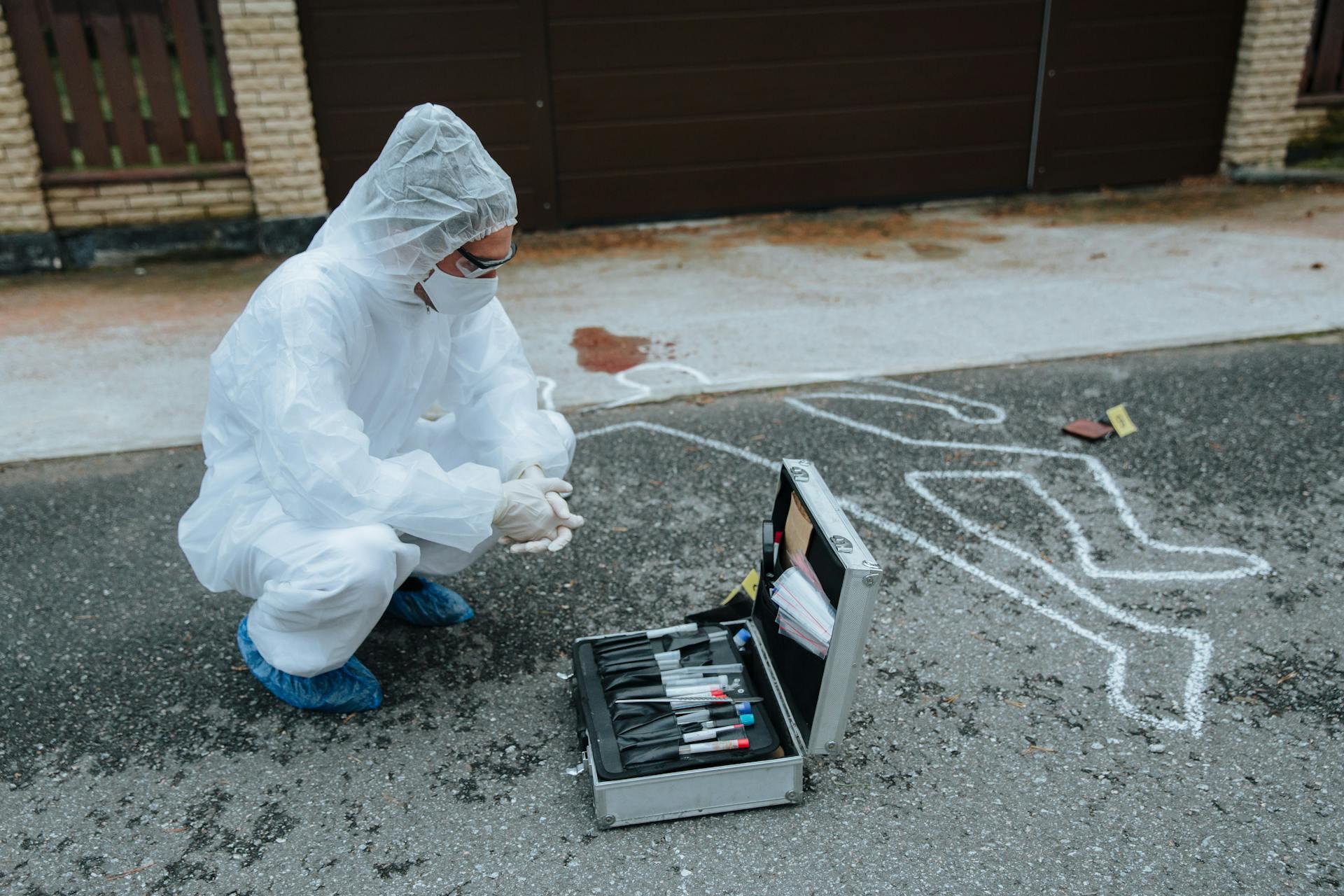
What Do Forensic Scientists Do?
TV shows and movies take the grains of truth about forensic science and turn it into interesting, entertaining media. Unfortunately (or fortunately, if you’re truly passionate about forensics!), the work of a real forensic scientist is much slower-paced and leads to fewer clear-cut answers.
Forensic scientists are responsible for the collection of, documentation of, analysis of, and maintenance of evidence relating to crime scenes as well as producing helpful reports that can be used by other police/investigation forces and in court.
Forensic science is an intersection between bio-sciences, chemistry, physics, and criminal justice.
But what do forensic scientists actually do when they’re at work?
Forensics is related to the Latin word “forum,” meaning to open up public discussion. In modern usage of the word, it means to be used in a court of law. So, forensic investigators and scientists of all sorts are responsible for gathering objective data and evidence suitable for use in court to prompt discussion in the forum (courtroom).
The Work Environment of a Forensic Scientist
Depending on the specialty or role of the particular scientist, forensic scientists may work in a few different settings.
At a Crime Scene
This is what most people think of when they think of forensics: crime scene investigation. Forensic investigators do indeed go to crime scenes to collect data. They are responsible for identifying relevant or important clues, documenting them properly, collecting samples and specimens properly, and ensuring the collections are brought safely to the office or lab.
Some of the types of data and samples a forensic scientist at a crime scene may collect are:
- Ballistics and firearm identification
- Explosives and evidence of them
- Identification (fingerprints, blood and other fluids, face ID, dental ID, etc)
- Hair, skin, fibres, and other materials
- Drugs, poisons, chemicals and contaminated items
- Photographs, audio, video, and sketches
- Documents
The job of a forensic investigator at the scene is to ensure to collect all the data that may be needed during the subsequent investigation and possible court cases. They must think ahead to what may be required to prove the presence (or lack thereof) of things like poisons or other substances that could have to do with the crime.
They may use tools like UV lights, fingerprinting kits, lasers, substance-detection kits, and specimen collection kits. They will also need to wear protective gear, like gloves, eye protection, and even hazmat suits to avoid injury or infection. Forensic scientists who work on scenes need to be prepared to travel and possibly have irregular working hours. They must also be comfortable dealing with disturbing situations.
Food technicians are another type of chemist who need to diligently practice safety measures.
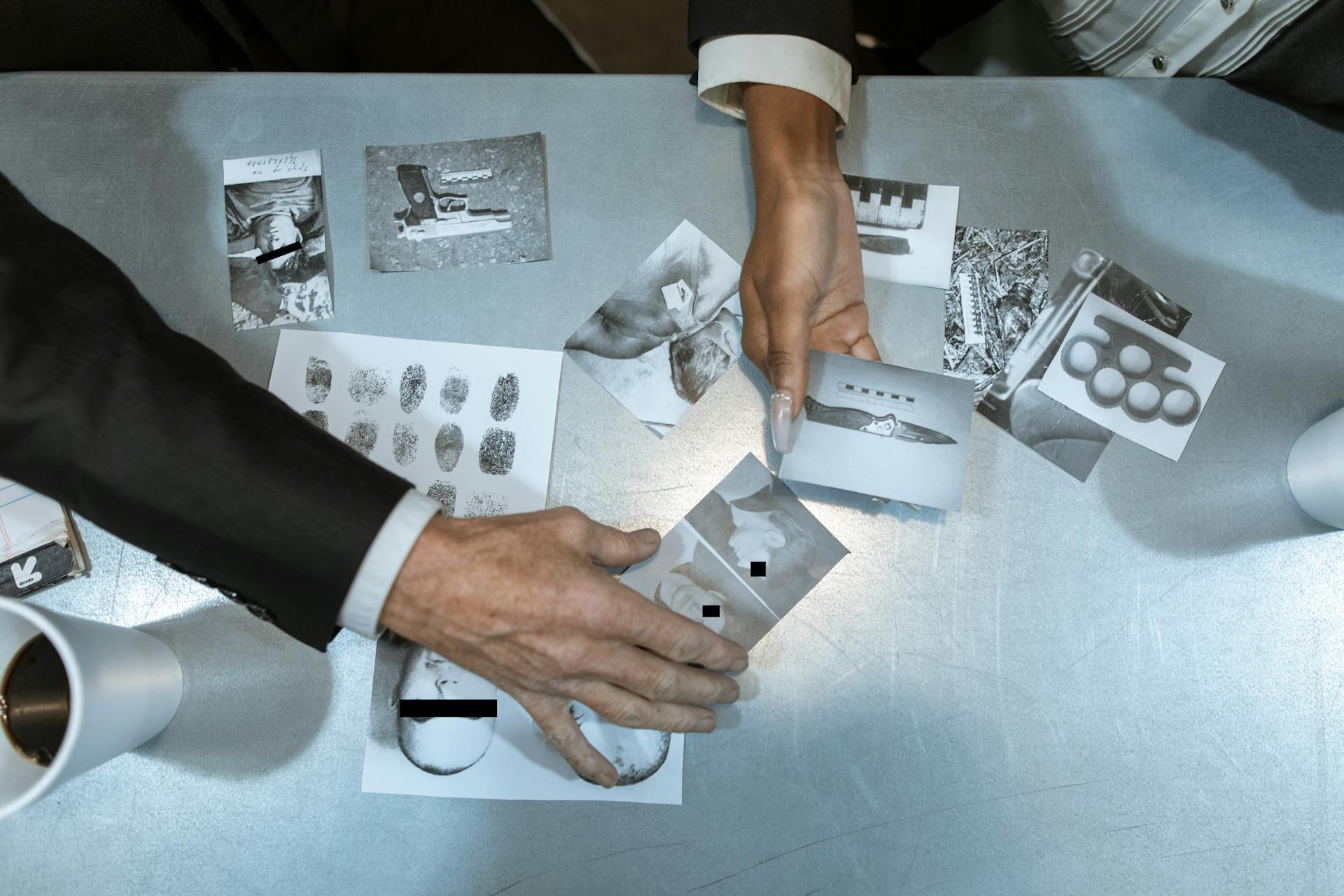
In a Laboratory
Another hands-on scientific area of forensics is the analysis of specimens in a lab. There are many sub-divisions in this area of forensics as well, with job responsibilities including:
- Autopsy and biopsy
- Chemical analysis
- Using scientific equipment to analyse collected data (with tools like microscopes, spectrometers, and centrifuges, for example)
- DNA sequencing
- Analysing ballistics data and blood splatter patterns (from photos, videos, and documentation from the scene)
- Processing fingerprint and other ID data
- Analysing documents and digital files
- Storing evidence properly
- Producing lab reports
- Creating new laboratory methods
The evidence analysed in the lab is given to authorities for their ongoing investigations. As you can expect, forensic scientists must work closely with police and other entities. Forensic scientists do not conduct investigations themselves; they do not catch criminals. Instead, they simply work with police to discover what evidence is available in a scientific capacity.
In this setting, scientists can expect more regular working hours. As for safety, they will need to observe standard lab safety protocols.
In a Courtroom
Forensic scientists may be called upon to give expert testimony in court. They may be required to present information they themselves found at a crime scene or in the lab. It’s possible they may also be asked to interpret information being presented by others in the court case.
While not scientifically invigorating, being part of a court proceeding is a very important aspect of forensics of any kind.
In the court, a forensic scientist may:
- Present data they have prepared for the case
- Submit reports and data about evidence pertaining to the case
- Be asked to interpret data being presented in the case
This part of the job requires forensic scientists to have strong speaking and communication skills. They should also be comfortable presenting data in a clear manner and have good courtroom etiquette. The hours for this aspect of the job are regular with no expected hazards.

Different Types of Forensic Science
As you can tell, there are many different roles that forensic scientists can take on. Therefore, it only makes sense that there are different specialties forensic scientists can work in. Some jobs may combine or blend roles, and it may be possible that one scientist fills different roles on different days or in different cases. It can also be easy for forensic scientists to change their focus in their career; they do not usually need to attend specialised training (or at least not an entirely new degree) to be able to do other forms of forensics work.
Here are the most common jobs for forensic scientists in Australia.
Criminalist or Forensic Scientist
Works on the scene of a crime (or accident, tragedy, etc) to gather data and evidence. The goal is to collect data that will point to information like a motive, method, cause of accident, etc. They may also be responsible for gathering identification data for victims at the scene as well as possible criminal identification data.
Often, they also analyse data and specimens in a laboratory.
Forensic Chemist
Forensic chemists test non-biological substances found at crime scenes, like gunpowder, drug residue, and explosives. In the lab, they will perform tests to analyse samples taken from a crime scene or other environment (for example, confiscated drug paraphernalia).
Blood Splatter Analyst
By observing the shape of blood stains and splatters and the quantity of blood, these analysts collect data that can be used to create a possible scenario. They may be able to indicate the movements of the victim, the types of wounds inflicted, and determine if there has been an attempt to create a false scene.
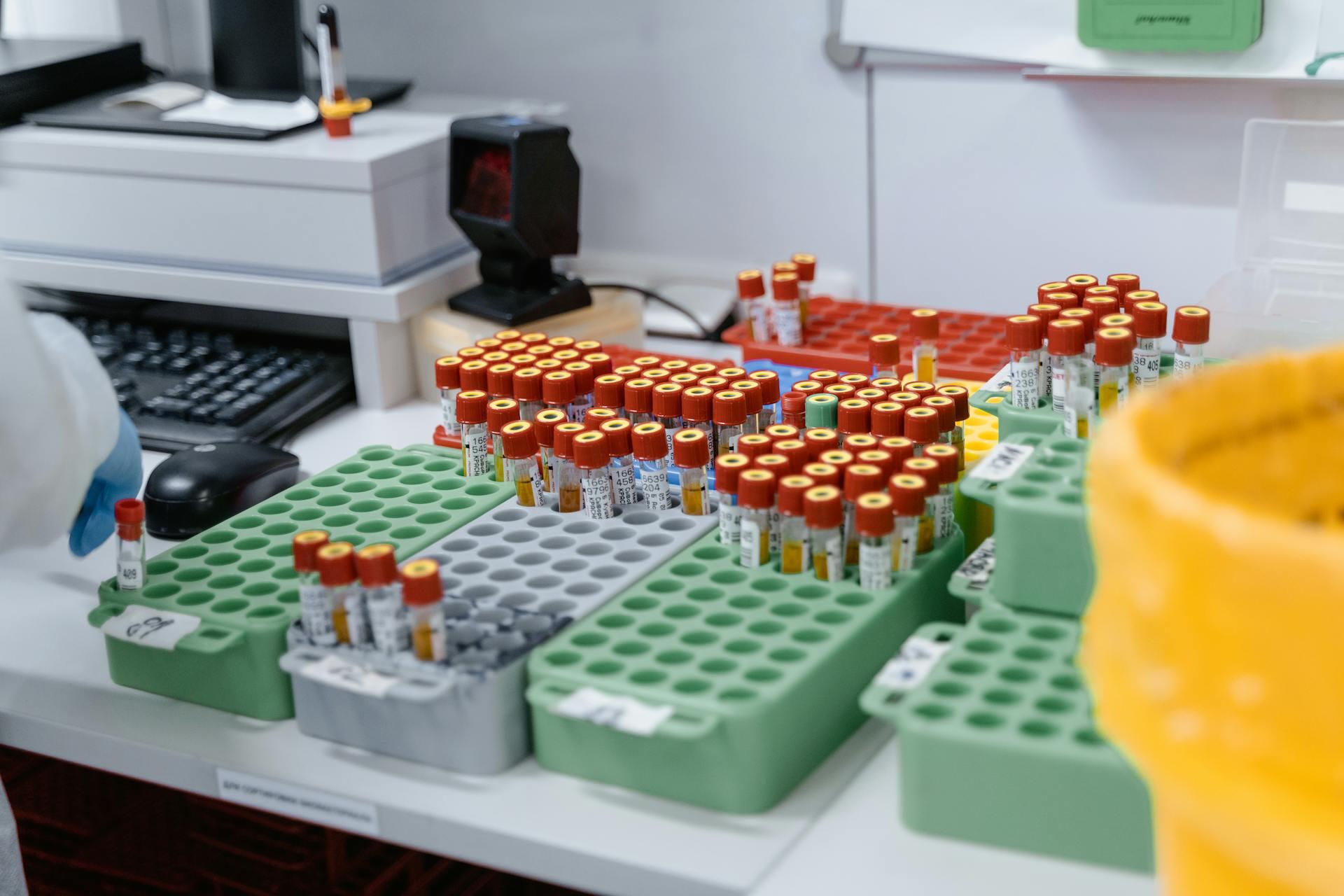
Toxicologist
Using the data and specimens collected by themselves or criminalists, anthropologists, pathologists, or other specialties, toxicologists test human substances for drugs and poisons. They may also determine if a health issue was at play in a situation. Using test kits and other scientific equipment, they analyse hair, skin, blood and other bodily fluids, and nails for the presence of substances.
This is an area that may cross with pharmacology, as toxicologists work to detect substances in a body.
Forensic Psychologist
These specialists focus on the human aspects of a case. They may analyse crime scene data for profiling to detect motives or patterns of serial killing. Interviewing suspects, victims, and witnesses is also a large part of the job. Psychologists deal with ascertaining the competence and mental states of interviewees to determine if they are fit to stand trial, testify, or make medical decisions. They may also evaluate people for mental illnesses which could impact a trial.
Forensic Anthropologist
This discipline focuses on identifying the biological and physiological characteristics of a body. They do not generally have anything to do with societal and cultural information, which is another meaning of “anthropology.” These scientists typically examine human remains (mostly bones) to determine factors about the deceased, such as age, sex, and unique features. Their goals are usually to identify bodies and possibly the cause of death.
Pathologist
If a body still has too much flesh to be submitted to the anthropologists, it will be examined by a forensic pathologist. These scientists have medical backgrounds which they use to perform autopsies with the goal of determining the cause of death or uncovering any other pertinent data. They may also assist with postmortem identification by collecting facial, dental, fingerprint, and DNA identification. Their findings can include determining the cause of death (external or internal), any injuries sustained before and/or after death, and the presence of an illness or disease.
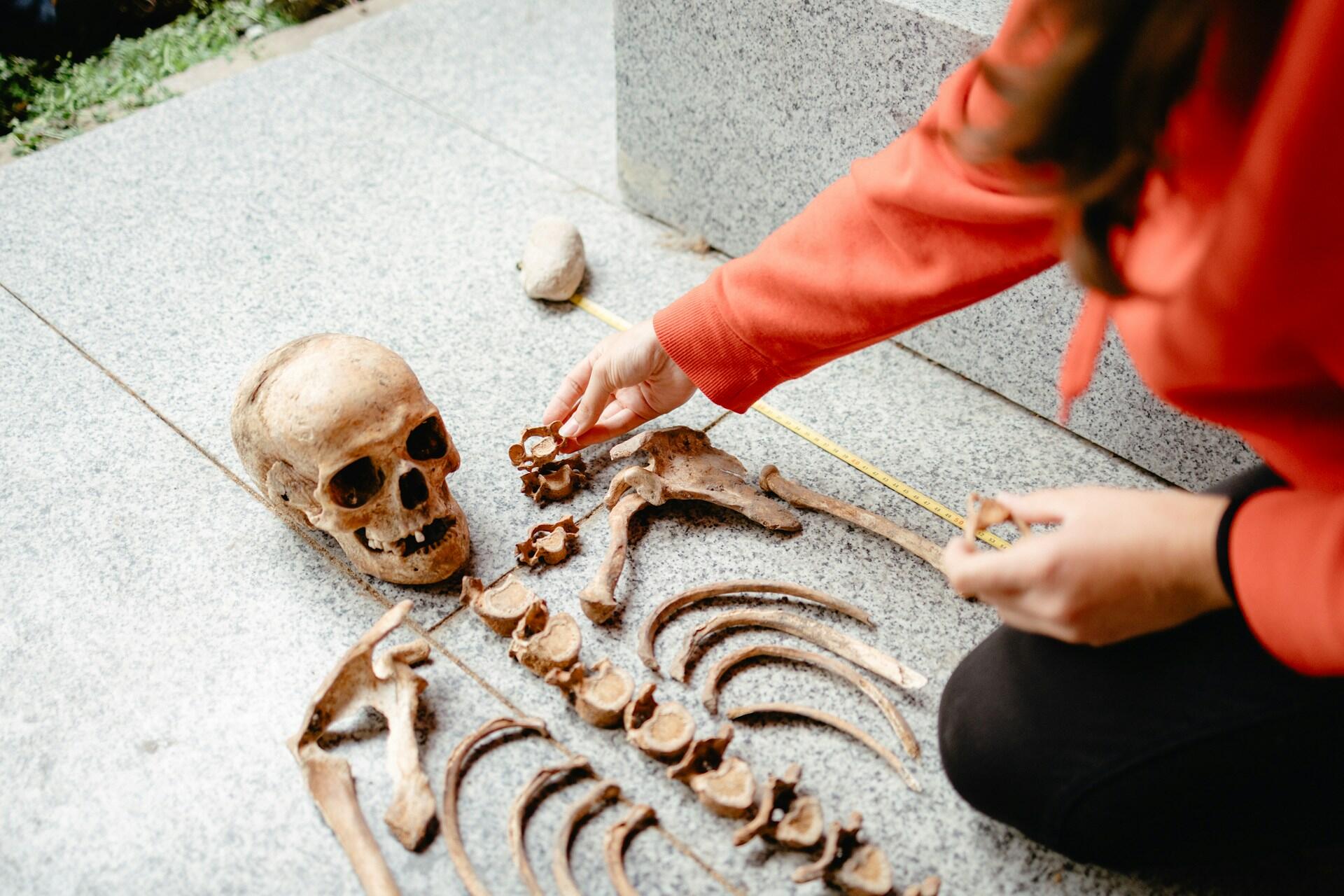
Questioned Document Examiner
This element of forensics deals with verifying the authenticity and validity of documents. They may use techniques like handwriting comparison and more to determine the veracity of a document. They may also be responsible for restoring and deciphering documents, and determining if there are missing unknown documents. Scientific tests may also be used to examine the ink and paper of a document as well as determine the machine used to write or print it (if any). They may examine ransom and suicide notes to deduct information.
Digital Forensic Examiner
Outside of violent crime scenes and the physical sciences involved with them are digital forensic investigators. They may work to detect cyber crimes and collect data from digital sources that have to do with a crime (violent or otherwise). IT experience is required for this specialisation.
Firearms Examiner / Ballistics Analyst
These professionals may observe ballistic data at the scene and use tools like lasers to get a comprehensive understanding of any bullet trajectories. They may also examine firearms to determine if they have a connection to the case, for example, by testing weapons and looking at shell casings.
Engineering & Applied Science Forensics
Not every situation that requires forensics is a violent crime! These scientists work in situations involving accidents (like industrial accidents or car accidents, etc), product failures, environmental contamination, explosions, building and bridge collapses, and other similar situations. Their goal is to determine the how and why of such things. Their research may lead to things like product recalls, convicting someone of negligence or proving their innocence, and ways to prevent similar situations in the future. Findings can even contribute to new laws and regulations for safety.

How to Become a Forensic Scientist in Australia
Forensic science requires a specific skill set, therefore if you want to get into the field, you’ll need to earn a relevant degree and complete specific training. At minimum, you must have a bachelor’s degree in a relevant field, and typically it will require a focus in forensics. Some jobs will require postgraduate education as well.
Best Universities in Australia for Studying Forensics
Forensics is almost a niche area of study. Some universities offer it as a specific degree concentration, while others may offer a pathway for students to study chemistry or biology with a forensics minor or equivalent. Here are the best programmes for forensic science in Australia.
- University of Adelaide (offers many forensics classes)
- Graduate Diploma in Forensic Odontology
- Monash University
- Master of Forensic Medicine
- Graduate Certificate or Diploma in Forensic Medicine
- Graduate Certificate of Forensic Nursing and Midwifery
- Flinders University
- Bachelor of Criminology
- Bachelor of Science (Forensic and Analytical Science)
- Bachelor of Information Technology (Digital Forensics)
- University of Technology Sydney
- Bachelor or Master of Forensic Science
- Griffith University
- Bachelor of Forensic Science
- Bachelor of Forensic Science & Criminology and Criminal Justice
- Master of Forensic Mental Health
- Deakin University
- Bachelor of Forensic Science (options: Forensic Chemistry, Forensic Biology)
- Bachelor of Forensic Studies (options: Psychology, Criminology)
To become a forensic scientist (especially one who deals with criminology), you will need to earn a degree in forensic investigation, forensic biology, toxicology, biomedical science, or a related area. Some roles will also require postgraduate education in forensic studies.
Some forensics jobs may provide on-the-job training, so you can fit into a role as long as you have the required background knowledge from your studies. Other roles require more specialised degrees, and some employers may even sponsor your education to achieve that specialisation.
Studying to become a forensic scientist will take a lot of time and dedication as you study subjects like chemistry, biology, mathematics, and physics. If you’re falling behind in understanding your studies, you can find an amazing private tutor on Superprof to help!
References
- 12 Different Types of Forensic Science. (n.d.). In www.alliant.edu. https://www.alliant.edu/blog/the-different-types-of-forensic-science
- ERI Economic Research Institute. (n.d.). Forensic Scientist Salary Australia - SalaryExpert. In www.salaryexpert.com. https://www.salaryexpert.com/salary/job/forensic-scientist/australia
- Get to Know the Different Types of Forensic Scientists. (2017). In Center for Statistics and Applications in Forensic Evidence. https://forensicstats.org/blog/2017/07/15/get-know-different-types-forensic-scientists
- Jobs and Skills WA. (n.d.). In Jobs and Skills WA. https://www.jobsandskills.wa.gov.au/jobs-and-careers/occupations/forensic-scientist
- Team member. (n.d.). In Forensics - AFP. https://www.afp.gov.au/jobs/roles/examiner-or-investigator-forensics#
- What is Forensic Science? (n.d.). In American Academy of Forensic Sciences. https://www.aafs.org/careers-forensic-science/what-forensic-science
Summarise with AI:

